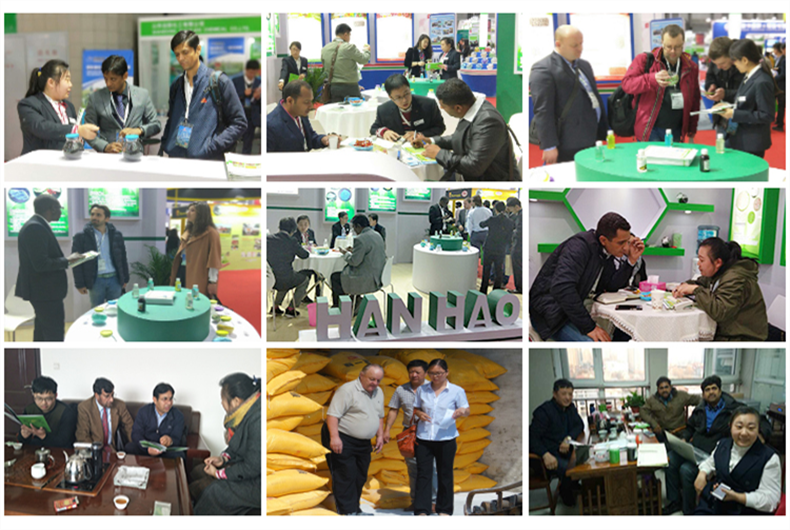
Nov . 29, 2024 14:28 Back to list
Optimal NPK Fertilizer Ratios for Maximizing Wheat Yield and Growth Potential
Understanding NPK Fertilizer for Wheat Cultivation
Wheat is one of the most significant staple crops worldwide, serving as a primary source of food for billions of people. To ensure healthy growth and optimize yields, farmers rely on various agricultural practices, including the application of fertilizers. One of the most common types is NPK fertilizer, which provides essential nutrients that are critical for the growth of wheat plants. Understanding the composition and application of NPK fertilizer can significantly impact wheat production.
What is NPK Fertilizer?
NPK fertilizer is a combination of three key nutrients Nitrogen (N), Phosphorus (P), and Potassium (K). These elements are crucial for the overall health and productivity of plants. Each nutrient plays a distinct role
1. Nitrogen (N) This nutrient is vital for vegetative growth. It promotes the development of leaves and stems, contributing to a plant’s overall biomass. Adequate nitrogen levels lead to lush green foliage, which is essential for photosynthesis and healthy growth.
2. Phosphorus (P) Phosphorus is important for root development and energy transfer within the plant. It plays a critical role in processes like photosynthesis and nutrient uptake, ensuring that the wheat plants establish strong roots and can effectively absorb water and nutrients from the soil.
3. Potassium (K) This nutrient helps regulate various physiological processes in plants, including water retention, enzyme activation, and photosynthesis. Potassium is critical for the overall resilience of the plant, particularly during periods of drought or stress.
NPK Ratios and Types
npk fertilizer for wheat

NPK fertilizers come in various formulations, indicated by three numbers representing the percentage of nitrogen, phosphorus, and potassium, respectively. For example, a fertilizer labeled as 15-30-15 contains 15% nitrogen, 30% phosphorus, and 15% potassium. The choice of NPK ratio should be based on soil conditions, wheat variety, and the specific growth stage of the plants.
Different stages of wheat growth require different nutrient concentrations. During the early growth stages, higher nitrogen levels are often beneficial for vegetative development. As the plants enter the flowering and grain-filling stages, an increased proportion of phosphorus and potassium is recommended to enhance root strength and grain quality.
Application Methods
The application of NPK fertilizers can be done through various methods, including broadcasting, banding, or fertigation. Broadcasting involves spreading the fertilizer evenly over the soil surface, while banding places it in specific rows or bands, making it more accessible to the plant roots. Fertigation involves applying the fertilizer through the irrigation system, providing a direct method of nutrient delivery, particularly efficient during peak demand periods.
Soil Testing and Recommendations
Before applying NPK fertilizers, it is crucial for farmers to conduct soil tests to evaluate nutrient levels. Soil testing can help in understanding the specific needs of the soil and guide the farmer in selecting the appropriate NPK fertilizer type and application rate. Over-fertilization can lead to nutrient runoff, environmental pollution, and an imbalance in soil health, while under-fertilization can result in poor yields.
Conclusion
In conclusion, NPK fertilizers play a pivotal role in wheat cultivation, influencing growth, yield, and quality. By understanding the functions of nitrogen, phosphorus, and potassium, as well as appropriate application techniques, farmers can make informed decisions that enhance their wheat production. Regular soil testing and tailored nutrient management practices will not only improve wheat yields but also promote sustainable agricultural practices, ensuring food security for the future. By optimizing the use of NPK fertilizers, we can support the growing global demand for wheat and contribute to the resilience of agriculture worldwide.
-
Premium 10 10 10 Fertilizer Organic for Balanced Plant Growth
NewsJul.29,2025
-
Premium 10 10 10 Fertilizer Organic for Balanced Plant Growth
NewsJul.29,2025
-
50 Pound Bags of 13-13-13 Fertilizer for All Plants – Bulk & Organic Options
NewsJul.28,2025
-
High-Efficiency 15-30-15 Granular Fertilizer for Healthy Crops
NewsJul.28,2025
-
15-30-15 Granular Fertilizer for Optimal Crop & Lawn Growth
NewsJul.27,2025
-
Premium 10 10 10 Water Soluble Fertilizer for Fast Plant Growth
NewsJul.26,2025
